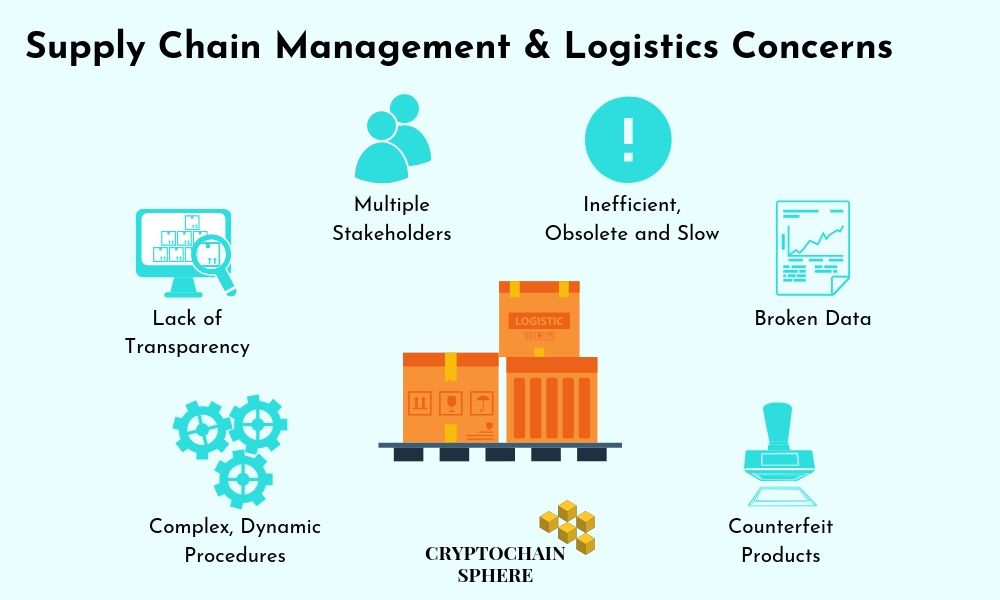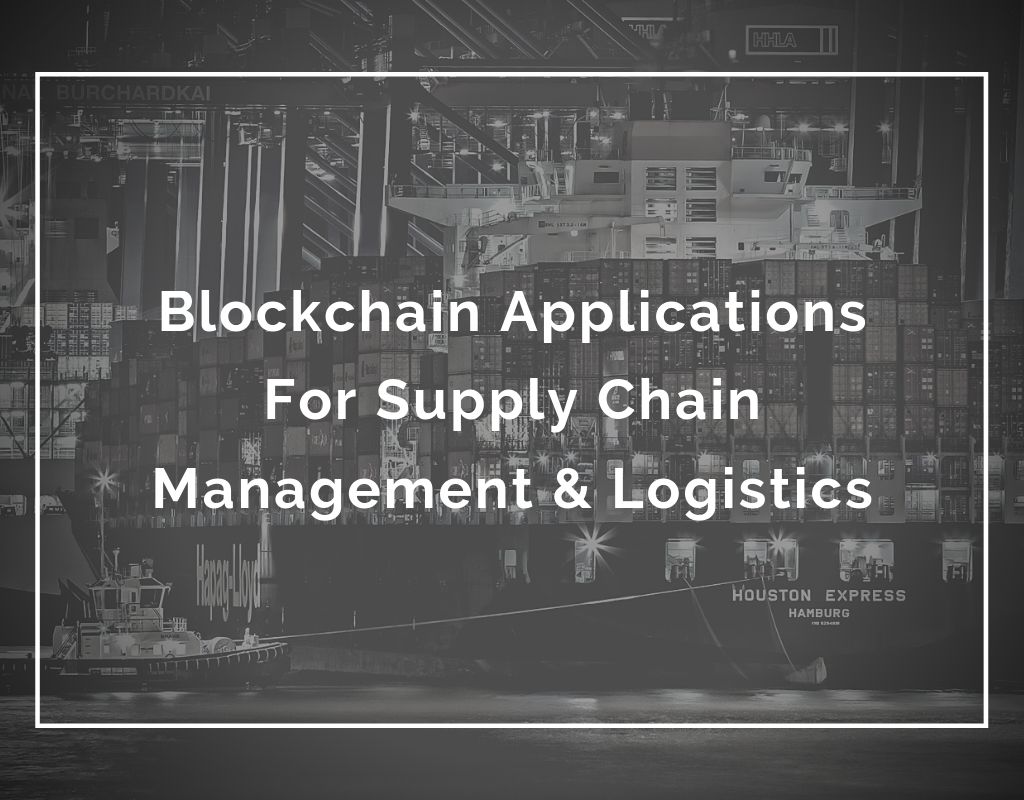Blockchain applications and use cases relevant to supply chain management and logistics sector.
The potential of blockchain is growing and how! Not only the disruptive technology is quickly gaining momentum, but it is also now being explored for agriculture, real estate, banking and more!
In this particular article, we are looking at the scope and applications of blockchain for supply chain and logistics. Moreover, the present limitations of the traditional supply chain management system and how to overcome each one of them by leveraging blockchain technology
Supply Chain Management
Supply chain management is a billion-dollar industry. A study estimates that the industry will reach $19 Billion by 2021.
Now, that is a huge number!
With increased globalization, there have been a steady rise of ever more complex supply chains. But, is it equipped to deal with rising growth? Does the current technological infrastructure support the needs of this industry? Are the suppliers content and, the end customer satisfied with the present conditions of the supply chain management sector?
Well, let’s find out!
How is Supply Chain Broken?
This large-scale industry is far too complex, difficult and demanding to sustain long term if it keeps operating with the same methods. The lack of appropriate tools and technology in the supply chain makes it difficult to meet the increasing demands.
This industry is like a movie with multiple actors, each concerned and bound to their own roles. For the supply chain, stakeholders are the actors of this movie. Multiple stakeholders operate at different levels without a proper system or method for co-ordination for different operations.
Adding on top of this is the absolute lack of trust among these different characters. This (characters) includes the supplier, transporter, manufacturer, retailer, and the end customer.
With the lack of trust, another concern is the absence of transparency in supply chain and logistics operation in order to conduct smooth business. The improper co-ordination, different levels of operation makes the whole chain time consuming, expensive and inefficient.
The efficient flow of information is a vital need in the supply chain management business. It is necessary to have accurate information at the proper time in order to conduct multiple operations seamlessly. However, presently the information is fragmented, incomplete, inaccurate and slow. This creates a broken link between the shareholders.
Supply Chain Management and Logistics Concern

One of the major concern in a supply chain sector, which has also given rise to various food scandals, is the lack of traceability.
At present, there is no available means through which a product can be traced at any given point on the chain. This possibility creates a lot of loopholes within the system.
In recent times, the challenge has grown multifold. Scandals in the food manufacturing industry have increased tremendously. This has resulted in deterring trust of consumers. Furthermore, the consumer is more aware than ever before. He wants to know where his food supply is coming from and how much of it is organic.
But in the traditional food supply chain, there are no available means in which a product’s life cycle can be traced. Also, this inadvertently affects a company’s reputation as well as can lead to huge fines and loses.
When we try looking at the bigger picture we find that these issues of trust, transparency, and traceability are just the tip of an iceberg. The supply chain and logistics industry are weaved into complex structures which are firmly ingrained inside each operation. Scaling the supply chain management business is a tricky deal looking at the present scenario!
Blockchain Supply Chain Platform
Fortunately, we are at a peak of another revolution. Blockchain technology, which grabbed attention with the advent of bitcoin, has spread its hands far too long.
Now we see the potential use cases of blockchain technology in healthcare, real estate, banking, governance, and even the philanthropic world. Some of the intrinsic features of blockchain technology such as record-keeping, transparency, and accountability can be vital in solving the challenges faced by supply chain industry today.
Let’s take a look at some of the blockchain applications which can change the way this whole industry works!
Blockchain Applications in Supply Chain Management
With its unique features, here are a few key things that blockchain can compliment in the current industry.
- Blockchain technology has the capability to virtually reduce all the complexities surrounding the industry.
- It enables tracking, tracing, recording, updating and maintaining each transaction that happened over the life course of a product.
- The multiple copies deliver one single truth across the whole chain. It streamlines multiple channels into one single channel which holds all the bundles of information.
- The information on the chain can easily be verified reducing the fraudulent activities altogether.
The blockchain supply chain is a strong product which can not only add value to the industry but also can simplify each operation. This, in turn, reduces time taken for each activity, adds trust and transparency between the supplier and the end consumer, remove multiple intermediaries in the process and hence save money and resources.
Transparency and Traceability

As we saw earlier, one of the key challenges to address in the supply chain industry is the absence of a suitable tool or technology to trace a product. In turn, this creates a lack of transparency in the whole chain. It has resulted in a market for counterfeit drugs and products.
The consumers, now more than ever, want to be aware of where their product is coming from! However, one doesn’t have access to basic information such as the materials used in producing, the location of a product, delivery time, etc.
Blockchain in the supply chain enables to receive, even the miniature details of the product. The end consumer can know each and every feature of the product before the delivery itself. The movement of shipment gets recorded inside the blockchain.
With blockchain, each product has a unique id through which the shipment is tracked and recorded inside the ledger. This adds a layer of transparency and trust between the manufacturer and the end consumer.
The tracking of shipment also helps to identify any errors which may have taken place while the product gets exchanged through multiple parties. The end consumer has a clear idea about the manufacturing, delivery, and the time in which the product will reach.
Simplified Cross Border Deliveries

Globalization has made it possible for countries to effectively trade with each other. But, the supply chain industry has grown even more complex with the interconnectedness and complexity of the world. Additionally, it becomes challenging to conduct trade effectively with the regulated governance structure differing from one region to another.
The cross border transfers also have to bear additional costs due to the heavy transfer fees levied upon them.
Blockchain technology holds a single system of records. Other parties or stakeholders merely have a replication of the same data.
If the data is updated in any one copy, the same gets updated in all the multiple copies across the network, thereby creating single truth. The singular data eliminates the need for stakeholders to maintain oversight of the network.
Smart contracts are equipped to deal with converting multiple complex conditions into automated simple operations. Henceforth, the multiple regulations of differing governance can be written into pieces of codes and fed into smart contracts.
For example, if the excise duty varies in different regions, a code such as “As soon as the X (unique ID) product enters region A, the excise duty will be changed to Y%”- can be written on Smart Contracts. This ensures that such an automated calculation will automatically be enforced, without any human help.
Blockchain technology can also be of great help as far as cross border money transfers are concerned. Instantaneous transfers, across boundaries with zero transfer fees has already been proven by the technology. The sole feature alone makes the supply chain industry, less expensive.
Accountability in Operations

The lack of sustainable tools and technology to trace any shipment or provide transparency in operations has given rise to corruption, illegal goods, and counterfeit products. There are no proper means available to provide authenticity in a product or accountability to anyone’s operations.
Leveraging blockchain technology into supply chain operations provides accountability of actions taken by each participant. Each action is recorded inside the blockchain platform along with a digital signature and time-stamp. The same data is shared and in sync with all the other actors of the shared platform. As each action is tracked and shared, it is difficult for corrupted officers to conduct illegal activities.
For example- A barcode sticker with a unique id is attached on top of any product. While any consumer buys the product he/she may scan the barcode (on a blockchain-based Dapp). If the product is genuine/original, the scan automatically displays the unique id number along with its tracking history. Other information such as the raw materials used, FDA approvals, its origin, etc can also be viewed by the consumer.

Besides the data is decentralized, without any centralized authority or intermediary to manipulate it. Each act is accountable along with the party/stakeholder delivering the decisions.
Better Management of Data

Today, the data revolving around supply chain industry is highly centralized, slow, ineffective as well as inaccurate. The friction in data is a huge hindrance to the effectiveness in processes. The data collected is largely fragmented. Consequently, it is difficult to aggregate, disseminate and make a productive analysis of the available data.
Even the technology systems and the data analysis techniques that have grown over the years are not capable to deal with the dynamic and ever-evolving supply chain industry.
At its core, the most important aspect of blockchain technology is how well it manages data!
Considering one of the most prominent solutions of a thriving supply chain industry revolves around better handling and management of data, blockchain is an important medium through which the face of the industry can be changed. Coupled with the internet of thing (IoT) devices and smart contracts, we can leverage data to improve practices and management. Simultaneously, each piece of data is synced in real-time on the blockchain platform. It conducts faster processes in a much productive manner.
Such data can be analyzed in order to obtain fruitful results. For example- a supplier can know which inventory he needs to keep in stock. A retailer can keep a track of which product is selling fast!
Eliminating Human Errors

Manual errors are a very common problem faced by this industry. Millions of dollars are lost by companies each year due to human errors. For example- A retailer places a buy order for 100 toothpaste. Instead, the supplier, by honest mistake, processes a request for 120 toothpaste. Finally, only 80 gets delivered to the retailer and instead, he receives a bill for 120. Such mistakes or discrepancies are very common in an industry where a large number of hands are operating at multiple levels
Such mistakes up to some extent can be eliminated with the help of autonomous smart contracts. It reduces the need for human help to monitor everything. Furthermore, smart conditions can also be put into a program which instantaneously gives a notification whenever there is a possibility of error. Plus, as each product is given a unique ID number in the system, it becomes relatively easy to spot any error.
Conclusion
Blockchain technology applications, more or less, are yet theoretical. The on-field functioning of such applications will only be clear after it is put into mainstream use. As of now, the technology is yet at a nascent stage.
Nevertheless, we can all accept the fact that the current approach is not enough to deal with the growing and dynamic supply chain sector. So if alternate methods are being construed, blockchain technology can be a powerful tool in redefining the structure of the supply chain management industry.

